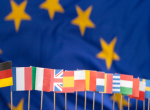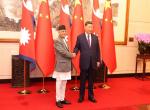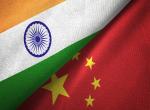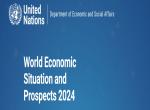Two significant developments in Northeast Asia escaped the attention of the Indian media because of its obsession to cover China’s aggressive policies on many regional issues. While the latter is too important to overlook and deserves critical scrutiny, the other developments that took place around the same time deserve equal examination. Both are related to peace and security in Asia. The two are South Korean President Yoon Suk Yeol’s path-breaking visit to Japan in March 2023 for a summit meeting with Japanese Prime Ministers Fumio Kishida and the other is Yoon’s visit to the United States for summit meeting with President Joe Biden in April 2023. While the former was a diplomatic thaw the latter was aimed to discuss in securing peace and stability in Northeast Asia because of North Korea’s nuclear threat. This essay shall only critically examine what Yoon’s meeting with Kishida means and why is it significant. Yoon’s summit meeting with Biden and what transpired would be examined in another piece subsequently.
Japan-South Korea relations have remained frosty for most of the post-War years. Both continue to suffer from the shadow of history. Mutual suspicion and acrimony have damaged bilateral ties over issues such as wartime compensation by Japanese companies to Korean workers during the colonial period, comfort women and also territorial issues centring on Takeshima island (Koreans call it Dokdo). During Yoon’s visit to Japan, the first of a South Korean President to Tokyo in 12 years, he addressed some of these issues. What was significant was that Yoon’s visit came just 10 days after the two leaders struck a deal to resolve a dispute over South Korea’s 2018 court ruling against Japanese companies’ use of forced Korean labour during World War II.
The larger import the Yoon-Kishida summit can be measured in the way that it provides a diplomatic boost and political momentum to establish a “future-oriented” bilateral relationship. Since Japan and South Korea are allies of the US, such bonhomie between the two Asian allies could help Biden in executing his Indo-Pacific strategy.[1]Yoon now faces troubles at home as nearly 60 per cent of South Koreans were not happy in Yoon’s handling of the forced labour issue with Japan. This aspect shall be explained later.
But first, what does this “future-oriented” bilateral relationship mean? And why is this viewed as significant? This needs to be understood in the larger context of the US-Japan-South Korea trilateral relations as the Yoon-Kishida summit supplements almost 40 trilateral meetings in 2022.[2] Biden was happy that the diplomatic rapprochement between two of its closest allies shall help him in implementing his Indo-Pacific strategy. The fact that the White House and State Department issued separate but reinforcing statements welcoming the “historic announcements” and the “groundbreaking new chapter” between two of its allies demonstrated the significance of this peace move.[3] The US has all along encouraged both allies to seek reconciliation and create political space for dialogue in trilateral meetings and therefore complements both Yoon and Kishida for the rapprochement initiative. The strained ties between the two Asian allies was a matter of worry for Biden as he was seeking to present a unified front against the rising power of China and threats from North Korea’s expanding missile and nuclear arsenal.
The irritants had spilled over to the economic domain and needed to be resolved. Japan announced its intent to remove export controls it had imposed on South Korea in regard to three materials needed to produce semiconductors and displays since 2019.[4] Seoul too dropped dispute process as Yoon and Kishida reached common ground in Tokyo.
The measures were adopted in response to the forced labour court ruling. Following the summit, South Korea’s trade minister announced to withdraw a complaint filed against Tokyo at the World Trade Organization. Both actions create an opportunity for increased cooperation on economic security, including coordinating supply chains and building resilience against Chinese economic coercion. Japan’s decision to lift export curbs will serve as a groundbreaking opportunity to normalise economic and trade relations between the two countries.
The security issues were also discussed. Kishida announced that the two countries would resume defence dialogue and strategic talks at the vice-ministerial level. This would subsequently lead to full restoration of the General Security of Military Information Agreement which both countries had signed in 2016, enabling the two sides to share classified intelligence. Improved security ties will help strengthen defence and deterrence on the Korean Peninsula and beyond. North Korea’s nuclear threat was surely the driving factor in this understanding as the threat posed by Pyongyang is too worrying for regional peace.
At another level, understanding was reached to promote relations across civil society. It must be mentioned here that Japan’s governmental agencies such as the Japan Foundation and the JSPS aimed to promote cultural and educational understanding between the two countries have remained unaffected and invested in supporting a sizable number of Koreans to study in Japan. Regrettably India does not enjoy such privilege despite past congenial relationship and the present deepening of ties. Japan’s largest business federation, Keidanren, plans to establish a joint scholarship fund with South Korean businesses to promote youth exchanges.
Yoon was accompanied by a delegation of South Korean business leaders who met their Japanese counterparts. Indeed, people-to-people exchanges help glue Korea-Japan ties from the bottom-up, and not just the top-down.
As expected, the steady ratcheting up of North Korea’s nuclear and missile threats, including a long-range missile test the day the Yoon-Kishida summit was to take place was discussed. Other issues such as concerns regarding China’s challenge to the existing rules-based regional order were also discussed. It pleased the US that its two Asian allies are now taking pragmatic steps to improve security cooperation on the Korean Peninsula and in the Indo-Pacific.[5]
The Biden administration is happy that like-minded allies and partners are coming together to support the US for securing regional security. In particular, Biden welcomes that the two of the US allies in Northeast are now cooperating on a wide range of issues beyond Northeast Asia. It may be mentioned that while Japan adopted its own Free and Open Indo-Pacific Strategy even before the US in 2018, South Korea released its own Indo-Pacific Strategy at the end of 2022. These also included cooperation in the areas of emerging technologies, climate change, and development finance, among others.
Reactions in South Korea on Yoon’s Move
While Yoon’s initiative was seen as a diplomatic thaw in the long frosty ties between Japan and South Korea and as a contributing factor to the future of Japan-US-South Korea trilateral dialogue framework, Yoon faced formidable domestic political headwinds. South Korea’s main opposition Democratic Party (DP) referred to the Yoon government’s deal with Japan on the forced labour issue as the “most humiliating moment” in South Korea’s diplomatic history. It was seen as capitulating to Japan. The opposition chastised Yoon for failing to obtain an apology from Japan. A Gallup Korea survey showed that 59 per cent of South Koreans opposed Yoon’s “unilateral gesture” to Japan and lack of an apology and compensation from Japan. 64 per cent did not consider Yoon’s proposed compensation plan adequate and felt South Korea did not need to rush to improve ties with Japan if there were no change in Tokyo’s attitude.[6] As South Korean companies rather than Japanese companies were to compensate victims, opponents believed Yoon conceded too much ground to Japan. There is still one option available: Japan can volunteer to pitch in somewhat to the compensation fund as a diplomatic cover with the objective to prevent domestic politics in South Korea from torpedoing bilateral relations again. The emotional angle cannot be overlooked in any diplomatic narrative.
During the discussion with Kishida, Yoon said his government would not demand that Japanese companies put money into the fund.[7] Also, the Japanese business community has not indicated if it would make voluntary contributions. Though not expected to make any payment under the plan, the Japanese companies would not be blocked from donating if they wanted to. If the Japanese companies show some gesture in making some contributions to the fund voluntarily, the gesture may help quell protests in South Korea or at least sooth the feelings of those Koreans unwilling to make any compromises to improve South Korea-Japan ties.
South Korea has often complained that Japan has not offered a formal apology for its past deeds. The present generation of Japan is not responsible for the deeds of their ancestors and therefore are nor responsible to owe an apology. This is a question of interpretation and can never be any finality and therefore must have a closure. In 1998, then Prime Minister Keizo Obuchi did express a sincere apology but now South Korean people want a restatement of the past apologies. That seems to be an unreasonable demand. Seoul also fails to appreciate that Kishida too faces his own domestic hurdles to making additional gestures that appear to go beyond the 1965 bilateral agreement that Tokyo contends fully settled all compensation matters. There is no language Japan can use to express remorse for its past deeds which will satisfy the Koreans. Unless there is some understanding reached between the two sides, such historical issues would keep on resurfacing in Japan-Korea relations.
It would remain a challenge for the conservative Yoon how he strategises his policies to overcome the lingering scepticism at home. The main opposition DP unilaterally passed a resolution through the parliamentary foreign affairs committee urging Yoon to withdraw the plan. The DP denounced the plan as “submissive diplomacy”.
Yoon’s People’s Power Party (PPP) boycotted the meeting. The government’s human rights body felt the proposal was not appropriate for the victims by international standards. Song Doo-hwan, chairman of the National Human Rights Commission felt that the compensation cannot address the issue of restoring human dignity, and therefore all countermeasures must consider the emotional and psychological damage suffered by the victims. In the past also, conservative prime ministers argued that South Korea must rethink to heal the historical wounds as the country confronts severe security challenges. Yoon feels that in view of the heightening threats from North Korea’s increased missile launches, his offer of olive branch to Tokyo can get domestic political cover to push forward with reconciliation. In fact, resistance from the people continues to remain the last remaining hurdle towards reconciliation. Yoon hopes the people of his country would take note of the fact hours after he departed Japan, North Korea test-fired an apparent intercontinental ballistic missile into the sea.
Reactions in Japan
The Yoon-Kishida deal was well-received in Japan. A Kyodo poll said 57 per cent of Japanese supported Yoon’s proposal to resolve the wartime labour dispute, while 33 per cent disapproved. Kishida’s ratings rose to 38 per cent, an increase of 4.5 percentage point from mid-February poll. Japan also took note that boycotts of Japanese products and vacations largely faded in South Korea. Post-Covid, the number of Korean travellers to Japan also increased. Three Japanese animated films are among the top five at box office in South Korea.
Thus it transpires that the coming years shall see greater coordination between Japan and South Korea in coping with the emerging security challenges in the region. While the US is too pleased with this development, China’s discomfort would be understandable.
References
[1]For Biden’s Indo-Pacific Strategy, see https://www.whitehouse.gov/wp-content/uploads/2022/02/U.S.-Indo-Pacific-Strategy.pdf
[2]Andrew Yeo, “South Korea-Japan rapprochement creates new opportunities in the Indo-Pacific”, 17 March 2023, https://www.brookings.edu/blog/order-from-chaos/2023/03/17/korea-japan-rapprochement-creates-new-opportunities-in-the-indo-pacific/[3]Motoko Rich and Choe Sang-Hun, “After South Korea’s Icebreaker, Its President Is Welcomed to Tokyo”, 15 March 2023, https://www.nytimes.com/2023/03/15/world/asia/south-korea-japan-relations.html [4] Kim Jaewon, “Japan lifts chipmaking export controls on South Korea”, Nikkei Shimbun, 16 March 2023, https://asia.nikkei.com/Spotlight/Japan-South-Korea-rift/Japan-lifts-chipmaking-export-controls-on-South-Korea
[5]For Biden’s Indo-Pacific Strategy, see https://www.whitehouse.gov/wp-content/uploads/2022/02/U.S.-Indo-Pacific-Strategy.pdf
[6]Ju-Min Park, “South Koreans skeptical as Yoon offers olive branch to Japan”, The Japan Times, 16 March 2023, https://www.japantimes.co.jp/news/2023/03/16/asia-pacific/south-koreans-skeptical-japan-deal/
[7]Josh Smith, Soo-Hyang Choi and Sakura Murakami, “South Korea companies to pay to resolve forced labour dispute with Japan”, 6 March 2023, https://www.reuters.com/world/asia-pacific/south-korea-announce-plans-resolve-forced-labour-dispute-with-japan-2023-03-06/
(The paper is the author’s individual scholastic articulation. The author certifies that the article/paper is original in content, unpublished and it has not been submitted for publication/web upload elsewhere, and that the facts and figures quoted are duly referenced, as needed, and are believed to be correct). (The paper does not necessarily represent the organisational stance... More >>
Image Source: https://www.japantimes.co.jp/news/2023/04/29/national/politics-diplomacy/fumio-kishida-visit-south-korea-may/









_1_0.png)

Post new comment